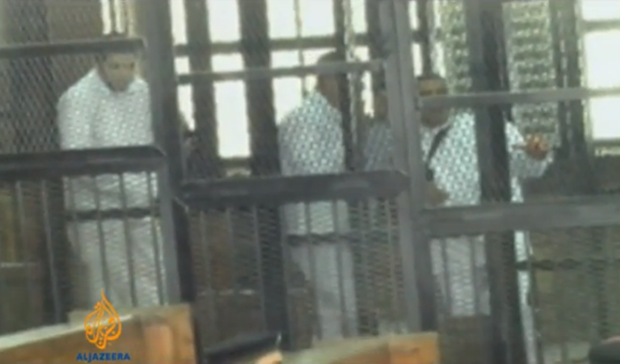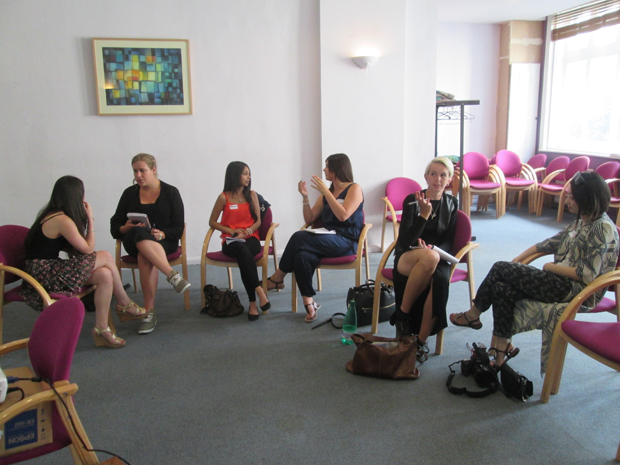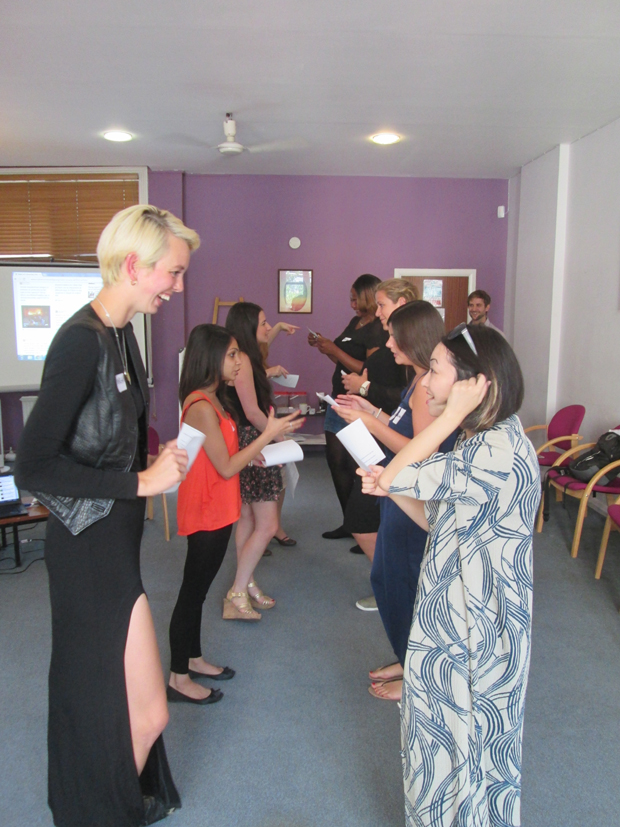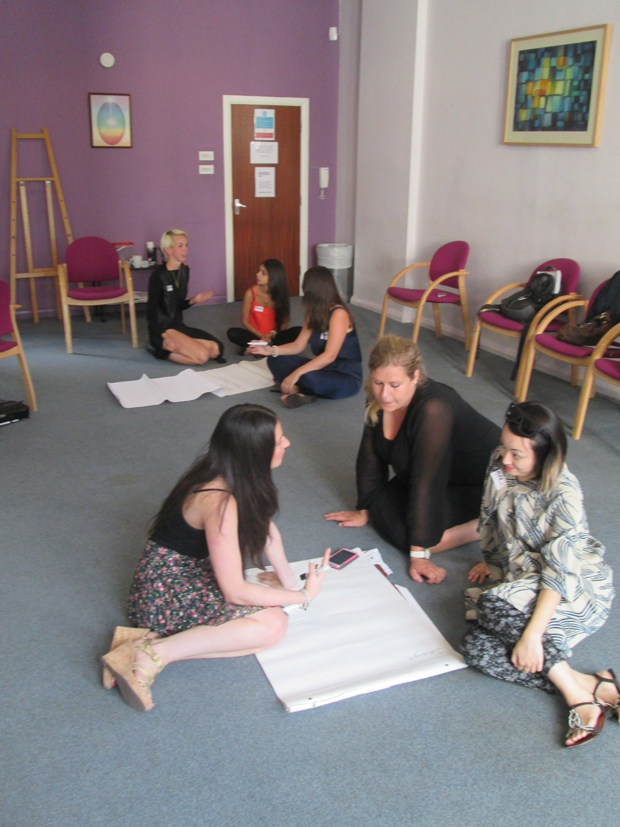8 Aug 2014 | Draw the Line, Young Writers / Artists Programme

(Image: Al Jazeera English/YouTube)
Egypt’s recently sentenced three Al Jazeera journalists to seven years in prison under the country’s anti-terrorism laws. Others, tried in absentia, were given ten years. In light of this, the Index Youth Board this month asked Index’s younger readership to consider the question: When does giving a platform to extremist views through art or journalism become an act of terrorism? And should artists or journalists be exempt from terrorism laws, or should inflammatory works be banned?
Some readers expressed concern over how certain authorities might use the term “terrorism” too liberally, or even corruptly. A number of recent articles have questioned whether or not the UK’s legal definition of terrorism is too wide and threatens to criminalise us all; the board’s own Morgan Meaker wrote that “Branding artists as terrorists doesn’t silence them, it only proves their relevance.”
Index brought together young people to discuss the issue in two workshops, one in the organisation’s offices and one at the youth arts centre Platform in Islington. Both events sparked many new opinions and questions. Some pointed out the difficulty in defining works of art and journalism, while others debated whether or not anything that is trying to manipulate people’s thoughts can be considered an act of terrorism.
On the #IndexDrawtheLine Twitter feed the responses varied greatly, with some readers putting emphasis on the intentions behind the works in question, whilst others claimed that all art and journalism is politically loaded. What seems to be agreed on, however, is the issue of the viewer’s perspective. @lightielikeefua pointed out that a work of art or journalism can be misinterpreted as an act of terrorism if the government or the public doesn’t like or understand it; as @sboy9700 wrote, “One’s freedom fighter is another’s terrorist.”
Explore the responses to this month’s question on Draw the Line.
7 Aug 2014 | Draw the Line, Events, Youth Board
For July’s Draw the Line event, Index hosted a workshop in our offices to debate the question, “Can art or journalism ever be terrorism?” This daunting question provoked some interesting answers, delving deeper into the subject matter the group began to question how do we define art, journalism and terrorism? What do we expect the role of artists or journalists to be in society? And who decides this?

Looking at both sides of the argument we presented the group with several different situations where artists or journalists had been censored and invited them to take part in a role-playing exercise where they had a go at playing both the person being censored and then subsequently the censor.

By playing out these situations from either side of the debate, the group found that it became more and more difficult to say who was definitively right and wrong in each of these situations? Who had the more legitimate right to express themselves? We all agreed the bottom line, of course, should lie in the guarantee of basic human rights for all sides – perhaps as laid out in Article 10 of the Human Rights Act, Article 19 of the UN’s Universal Declaration of Human Rights or America’s First Amendment.

These discussions all finally lad into a formal debate with two teams arguing for and against the statement ”This house believes that art and journalism can be terrorism’.

There was in the end no clear answer, but all of the group came away with many more questions of their own. As one participant said “there’s no black and white answer as I’d previously assumed”. All agreed that a wider debate was needed on the role art and journalism play in society, as well as more information on how that can and does differ all over the world.
Keep up with the debate on Draw the Line here and keep an eye out for our next event where we will be facing a new question and asking where do you draw the line on free speech?
29 Jul 2014 | Draw the Line, Press Releases
Index on Censorship was invited to join a meeting of the Lewisham Young Advisers to talk about our Draw the Line programme and discuss “Can art or journalism ever be terrorism?” and how the right to free speech affects every area of our lives.
The group dove straight into discussions of how, as a society, we should all have the right to free speech, but by voicing your opinions or beliefs there is the risk off offending others, so where do you draw the line? Another example offered by the group was exercising your right to free speech through voting and how non-voters can’t complain about a government if they don’t exercise their right to vote in elections.
The debate swiftly moved into this month’s Draw the Line topic, “Can Art or Journalism ever be terrorism?” The group mostly agreed that a piece of art of a piece of journalism could not be considered terrorism, but raised the question “what defines terrorism?” If it just included an act of violence in pursuit of political ideals then it couldn’t be, but at the same time wasn’t a film or a piece of writing capable of inciting hatred? And couldn’t this lead to acts of destruction? The group suggested that although this was true that it was more likely that this person already held these ideas or at least had the capacity to be violent.
The discussion showed that there is no easy answer to these questions, but it is important to keep having these debates and continuing the discussion of ideas to hear the different sides of every idea.
Get involved with the debate and let us know what you think about ‘Can art of journalism ever be terrorism?’ by tweeting using the hashtag #IndexDrawtheLine.
Lewisham’s Young Advisers are a group of young people who are interested in politics or getting involved in the community. Young advisers have a direct involvement in the process of determining council grant allocation to youth service initiatives, experiencing some of the real complexities of political decision-making and public service delivery.
7 Jul 2014 | Draw the Line, Events, Young Writers / Artists Programme
As cheers from the World Cup rumbled in the background, Index set up an online platform to debate the tussle between sport and freedom of speech. As part of the Draw the Line series of discussions, last month’s question was: Should repressive regimes be banned from sport? If countries have poor human rights record, do they deserve to participate?
Twitter erupted with opinions. Immediately the question of defining a repressive regime was raised – whose duty would it be to decide? Although many might agree that Iran’s government-controlled press was anti-free speech, would the US’s treatment of whistleblower Edward Snowden fall into the same category?
Others argued that banning offending countries would leave their crimes in the shadows. Instead they believed oppressive regimes should suffer the spotlight of global media – hoping that the publicity would encourage conversation and spark change.
Opinions seemed split at the first Draw the Line event, where ten young human rights activists gathered to discuss the same issue. Although some declared passionately that repressive regimes must be punished, there were fears that a ban would misdirect that punishment – affecting a country’s people rather than its leaders.
Defining the World Cup’s worst countries for free speech – or the “group of death” – seemed to make a much easier task for the young activists. Examining democracy, civil liberties, press regulations, internet freedom and corruption, participants unanimously decided that Cameroon, Iran, Nigeria and Russia qualified as the countries that held freedom of speech in the lowest regard.
As the debate evolved, a common consensus emerged: A campaign should be set up to stop countries that stifle free speech from hosting high profile sports events, like the world cup. With host countries benefiting from huge boosts to the economy, infrastructure and community spirit, this should be incentive enough to halt human rights abuses without punishing innocent citizens by banning countries completely.
More about Draw the Line





